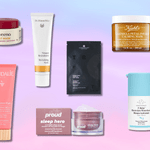How to Find the Right Vitamin C Serum for You

A dermatologist shares what to look for.
One ingredient dermatologists consistently tout is vitamin C. It’s adored for its ability to support collagen production, brighten dark spots, and prevent UVA/UVB damage, making it the gold standard of skin-care ingredients.
“Vitamin C acts as sort of a line of defense against sun damage,” says Julia Carroll certified dermatologist at Compass Dermatology. Even if you’ve applied sunscreen (which, as any derm will preach, should be applied every single day), some ultraviolet light from the sun can still get through to your skin. This creates something called “reactive oxygen species” or “free radicals,” says Carroll, which damage the skin’s DNA. Vitamin C can help counteract that. “So, it’s beneficial in terms of photoprotection,” says Carroll, as it helps to prevent future damage—but also helps correct it.
Vitamin C decreases pigmentation, says Carroll, and since it aids in collagen production, it also helps to reduce the appearance of fine lines and wrinkles. “Most of patients find the texture of their skin improves, and they get a bit more that glow that they’re looking for,” says Carroll.
Here, everything you need to know about choosing the right vitamin C serum for your skin, and how to apply it.
(Related: 6 Drugstore Vitamin C Serums That Are Actually Amazing)
Can anyone use vitamin C?
Carroll says it’s one of her go-tos in terms of recommendations for clients—but it may not be the best option for those with particularly sensitive skin. “I don’t recommend it to everybody because for some people it’s a little bit irritating,” says Carroll. In those cases, she’ll suggest other products, depending on her clients’ needs, that can offer similar protection and benefits.
When should it be applied?
Apply it in the morning, and follow with sunscreen—but if you prefer applying it at night, your skin will still reap the benefits. “A lot of the vitamin C serums have what’s called a ‘reservoir effect,’” meaning they can last up to 72 hours. “If you put it on at night, you would still be reaping the benefits the next day,” says Carroll.
How should it be applied?
Apply four to five drops on clean, dry skin. Prevent potentially wasting the product by using the dropper to drop the serum directly onto your face—one drop on the the forehead, one on each cheek, and one on the chin, and rubbing in. “I might go back and touch up a certain area, and then I’ll run it down my neck as well the chest,” says Carroll. Alternatively, you can drop it onto your fingertips, which are less absorbent than the palms of hands, and apply it that way.
How do you choose the best one for you?
“Look for ones that have L-Ascorbic acid,” says Carroll. “You really want to look for that specific molecule [as opposed to just “ascorbic acid’] because we know that that molecule can penetrate the skin.” Also, look for a concentration between 10 to 20 percent. “If it’s under 10 percent, it’s likely not effective, and if it’s over 20 percent it’s just wasteful.” Packaging is also important. Choose one that comes in an opaque or dark bottle, to prevent oxidization, says Carroll.
What are the best ones?
C E Peptides by Vivier is “a great vitamin C serum but it also has the addition of peptides [which help firm skin], so it’s more of an all-in-one product,” says Carroll. If pigmentation is a concern, Carroll recommends Phloretin CF by SkinCeuticals. If you have oily skin and acne is also a concern, she suggests Silymarin CF by SkinCeuticals, which is the brand’s newest vitamin C serum. “In it, vitamin C is combined with salicylic acid, which helps clogged pores,” says Carroll. Have dry skin and acne? Try Pro-Heal Serum Advance by iS Clinical.
Is there a budget-friendly option?
“If there were a product out there that was extremely inexpensive, I don’t think that you’d get the percentages that would be the equivalent to what you’d see in the higher-end ones,” says Carroll. Some brands can be deceptive with their marketing and even their ingredients list, so Carroll suggests investing in one of high quality. “My three non-negotiables are always sunscreen, topical vitamin C, and some type of retinoid,” she says.
Is there anything to know before applying it?
Be careful with what you pair with vitamin C. “I wouldn’t put it on at the same time as say a retinoid or glycolic acid,” says Carroll. “You don’t want too many active ingredients at one time because they can cancel each other out—or it can just be too much for your skin to handle.”




